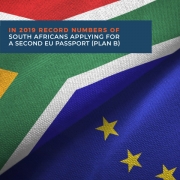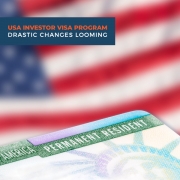NEWS | DEPARTMENT OF HOME AFFAIRS SHEDS LIGHT ON CRITICAL SKILLS IN SA
/in Archived, News /by xp-adminThe Department of Home Affairs’ (DHA) Director of the Corporate Accounts Unit, Mr Phindiwe Mbhele, has provided some much-needed insight to HR professionals in terms of the Critical Skills Visas and its requirements at the recent SARA International Mobility event in September 2019.
Critical skills visa journey
The first list identifying the scarcity of critical skills in South Africa, first published in 2006 and revised in 2009 and 2014, has become an ever-evolving element in recruiting skilled foreign nationals within the country.
From 2006 and prior to the publication of the current Critical Skills List, the ‘Quota Work Permit’ (since replaced by the now Critical Skills Work Visa), required consultation with the Ministry of Labour and Ministry of Trade and Industry in order to support the issuance of such a permit to a foreign national, and to determine the number of work permits that may be issued.
It is evident that the DHA throughout the years has continuously strived to simplify and improve the visa application process to allow employers to attract skills.
An example hereof is the uncapped number of work visas available within the Critical Skills List, this is however subject to constant monitoring to ensure that there is not a undesired influx of skills in the country.
Critical skills vs scarce skills
Many may identify Critical Skills and Scarce Skills as the same thing, however Mr Mbhele clearly differentiated the two terms.
The definition of “Critical Skills” are those that are regarded as critical for the improvement of economic growth, and without such skills, projects that serve to improve the economy, cannot be undertaken. Naturally, it also refers to high-level skills that are not easily sought within the country.
There is availability of certain levels of skills as prescribed in the Critical Skills list, however, the intention is to expand the “skill pool(s)” in order to accelerate further growth within the South African economy.
Conversely, Scarce Skills are identified as those that are unavailable in the country, however, are not always necessarily deemed to be in high in demand.
Temporary residence vs permanent residence as a critical skills holder
Mr Mbhele further provided a clear distinction between Temporary and Permanent residency in terms of those whom are Critically Skilled.
In order to qualify for a Critical Skills Visa, a person must possess a certain level of skills and qualifications and must be able to demonstrate such skills in line with the prescribed critical skills category.
Where employment is yet to be secured, this visa shall be issued for a period of twelve months to enable the person to seek and secure the appropriate employment within the country.
However, where there has already been employment secured, the visa may be issued for a period of up to five (5) years, albeit subject to passport validity and the duration of employment.
One of the upsides of obtaining a Critical Skills Visa is that the person immediately qualifies for Permanent Residency, however such a permit may only be issued once a permanent offer of employment is available to the applicant.
A Permanent Residency application is further reviewed and processed based on the person’s professional category and/or occupational class.
Does the OIHD list support the critical skills list?
Regrettably, no. Mr Mbhele has clarified the Occupations in High Demand (OIHD) list and its impact on the Critical Skills sector.
Accordingly, the OIHD list may not be associated with Critical Skills list as the OIHD list cannot be utilised for South African Immigration purposes.
The OIHD list serves to South Africans and the improvement of the Post School Education and Training System (PSET) and to identify the occupations that have been classified as high in demand and/or conversely, occupations that are experiencing scarce skills, but may expect an influx of demand in the future.
Why we need your input
Some occupations identified as Critical, may however be removed from the Critical Skills list due to the limited number of positions available within the country filled, not only by foreigners, but by South Africans.
This was made evident by the Department of Health’s recently issued notice indicating the suspension of the recruitment of foreign doctors.
Mr Mbhele advised that the new Critical Skills draft list is due to be published by April 2020.
As South African employers, it is our duty to provide input to the DHA in terms of those skills that are deemed critical across the respective sectors to ensure we continue to be able to attract the skills that contribute to the growth of our economy.
Xpatweb’s 2019 Critical Skills Survey allows South African employers to provide their feedback and input toward the economic growth. Participate in Xpatweb’s 2019 Critical Skills survey, here.
AUTHOR 
Marisa Jacobs
Director






